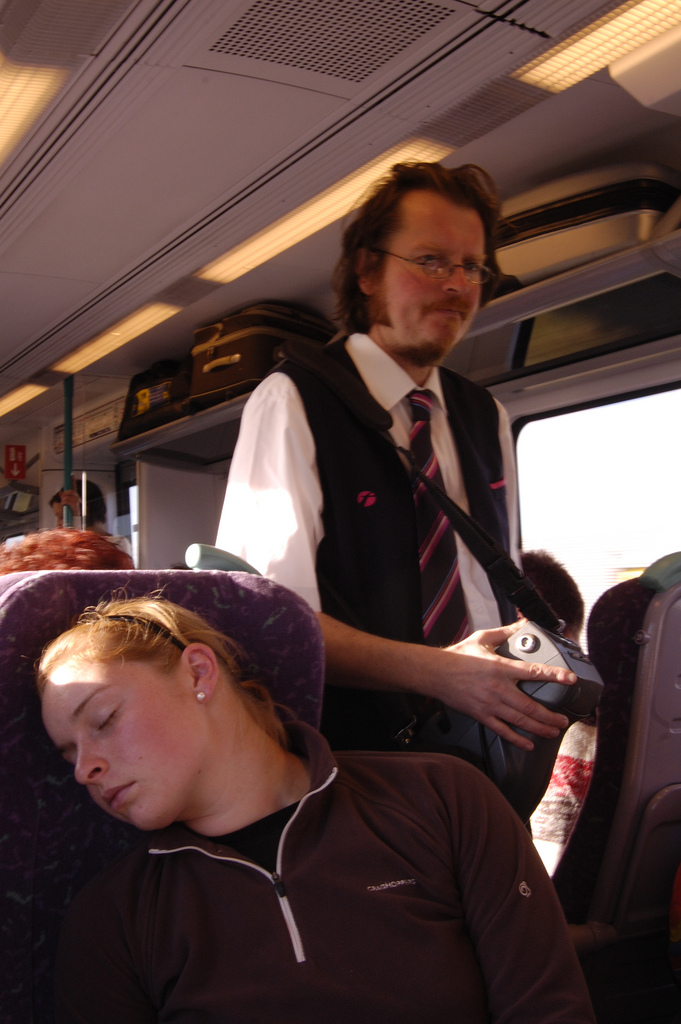
Steam Train, Steam Train
Back in the 1950s Ewan McColl embarked on a massive journey documenting different types of occupations. All part of his ethic of celebrating the working man and was done in the form of simple radio ballads. They would also be rich in the local accents of communities. His most famous work was the record, The Ballad of John Axon. The haunting opening line is “John Axon was a railway man/To steam trains born and bred/He was an engine driver at Edgley loco shed”.
This is not the first time that trains and music have been intimately involved. From the very start there is the natural rhythm of the old clickity-clack compared with the gentle hiss of today’s worms gliding along the long welded rails. Not to mention the thundering roar and whistles of the 1920s and 1930s as the glorious machines would race to and from their destinations, again compare that with the gentle hum of today’s commuter trains.
Jazz shook its hand with the rattling iron road, most famously with Glenn Miller’s interpretation of the standard Chattanooga Choo Choo and who could forget the fine wispy voice on Duke Ellington’s track, Take the A-Train? Still this is nothing compared to the golden age of Rock ‘n’ Roll with such classics from Elvis Presley, Chuck Berry and with many more of these hits still played today. The odes to the iron horse include Mystery Train (Elvis Presley) Let It Rock and Johnny B. Goode (Chuck Berry) although the tracks carry the metaphor of being just as much about the frustrations of life, buy not as one music critic put it “the first black man to sing about white issues”. Perhaps it was the pounding energy and rhythmic snorting that appealed to the balled up angst or the simple fact trains are affectionately known as “she”.
The 1960s is a bad period for both rock ‘n’ roll and trains (at least in the UK). They were still treasured tracks and you only have to turn to the blues revival of the late 60s to see that, coincidently at the same time when the railway preservation industry got started. Robert Johnson wrote the song Love in Vain and this was beautifully covered by The Rolling Stones on their Let It Bleed album. The slide guitar provides the whistle as the melancholic sounds reverberate. The subject of this gem obviously being the train taking away a never to be seen again love “the blue light was my baby and the red light was my mind”. The Grateful Dead humourously sing Big Railroad Blues and there is Randy Newman’s pop embellished Gone Dead Train from the Performance soundtrack.
Of course trains and cars are not the only mode of transport to be romanticised in music. Ship journeys feature in the punk-folk of The Pogues. Hardly a neat juxtaposition with this rather more leisurely and sedate form of getting from A to B, but you do not have to look far in to an Irish history book to see how the mass exodus to America happened. Traditional folk often played by romantics, has often seen trains and boats as a method of escape. Industry is obviously the mainstay of their craft, being reliant of the fruits of their time. Planes are a peculiar exception. True, planes are a glorified metal tubes that allows humans to do unnatural things, perhaps that is why they are not sung about with such affection. Still, “Give me a ticket for an aeroplane, Ain’t got time for a fast train/Lonely days are gone, I'm a-goin' home/My baby wrote me a letter” gives a clear sense of urgency.
There have been songs about cars before, take No Particular Place to Go, Baby You Can Drive My Car. The car before the 1970s is a status symbol something that would take you off so called “loser cruisers”, a symbol of door to door travel that proves you have arrived. Bruce Springsteen opened his hedonistic Born To Run with Thunder Road, a full V8 charge in to the life of a young go-getter who wants a good time. The immediacy is obvious and as he mentions later in Better Days “I’m tired of waitin' for tomorrow to come/Or that train to come roarin' 'round the bend”. The glamour of the train has been surpassed; the romance has dwindled in to box like shapes of meaningless and valueless metal, the name of the railway game is efficiency and this in music is not the way. Still the transport is the metaphor and music the madness.
So where next? Well that is a ponderous question and one that cannot really be answered. Apart from a couple of tracks and albums from the 1970s are illustrated with space technology, David Bowie's Space Oddity the 2001: A Space Odyssey soundtrack and who could forget Elton John's Rocket Man. All forms of transportation have been done and there is now little left to sing about. Are there going to be songs about social networking sites? They are not in the least bit human and the general proliferation there will not be not the same uniqueness behind the sentiment.
